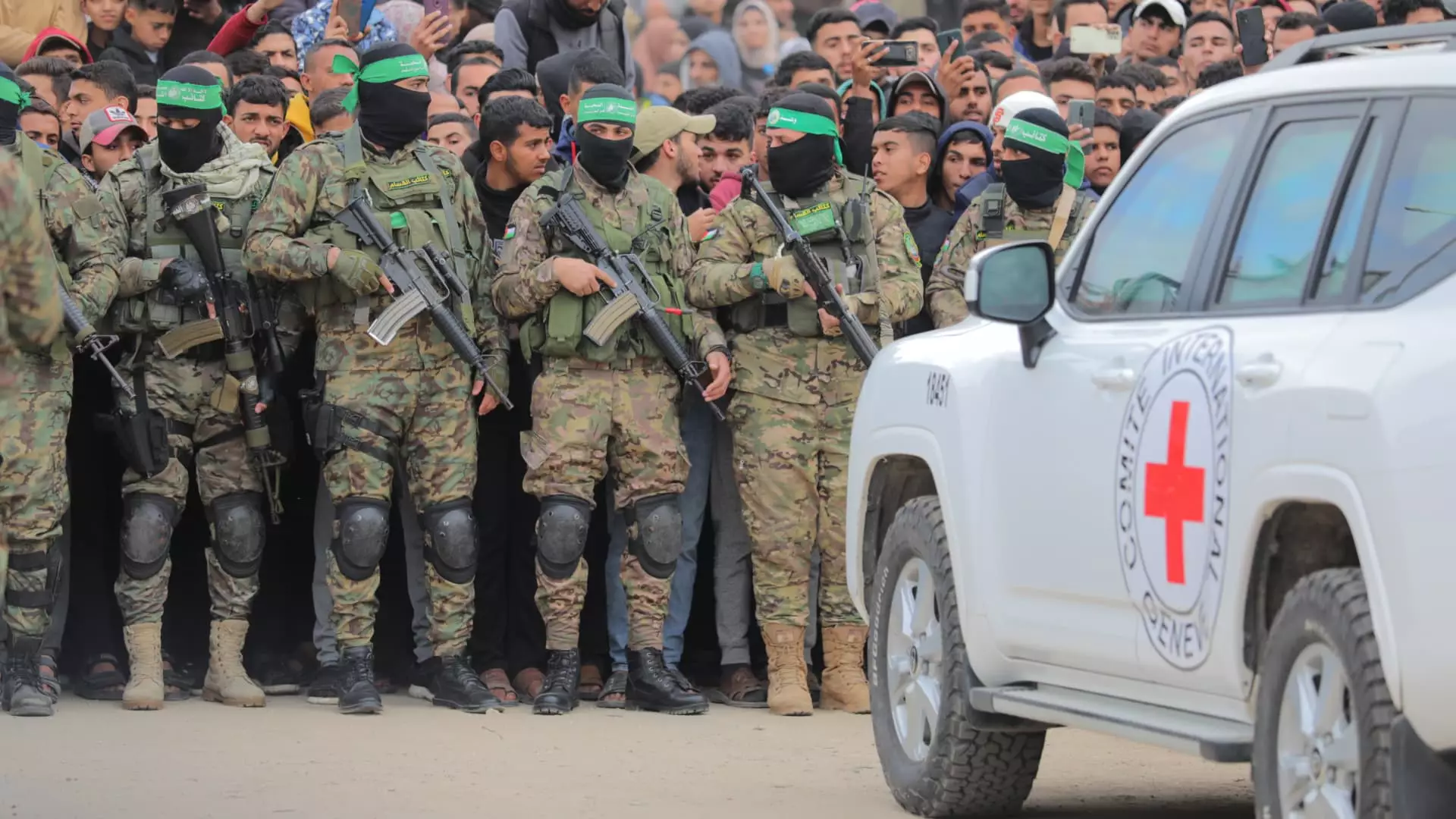In a dramatic escalation of the ongoing Israel-Hamas conflict, three Israeli hostages were released by the Palestinian militant group Hamas during a live televised event. This handover has raised significant concerns regarding the health and wellbeing of the captives and has reignited fierce discussions about the humanitarian implications of war and the ethics of hostage exchanges.
The release occurred amidst a fragile ceasefire deal, intended to end the prolonged 15-month conflict in Gaza. The three individuals—Ohad Ben Ami, Eli Sharabi, and Or Levy—were abducted during the deadly Hamas-led assault on October 7, 2023. Their return was marked by an unsettling ceremony in Deir al-Balah, where Hamas gunmen accompanied them onto a platform. Viewers were alarmed by their frail appearance, illustrating the harsh realities of life in captivity. Ben Ami’s mother-in-law expressed her horror, describing him as looking “like a skeleton.” Such descriptions do not merely reflect personal anguish; they highlight the broader human toll that hostilities impose on individuals and families alike.
Moreover, the hostages’ physical condition invites urgent inquiries into the treatment of captives in conflict zones. Their emaciated state starkly contrasts with the promises of dignified treatment that nations typically espouse during warfare. This raises ethical dilemmas surrounding the conduct of both parties involved in the conflict.
The reciprocal nature of the release was underscored by Israel’s decision to free 183 Palestinian prisoners, some of whom had committed serious offenses leading to fatalities. Such exchanges are fraught with controversy and deeply divide opinions within Israeli society. On one hand, families of hostages express profound relief and joy at reunifications, while on the other, the release of convicted individuals stirs fears of renewed violence. It illustrates the precarious balance that both sides must navigate: the desire for justice and the pressing need for humanitarian relief.
This hostage exchange is part of a continuation of negotiations that have yielded the return of 13 Israeli and five Thai hostages thus far, regarding 583 Palestinian individuals released. Despite the challenges posed, the ceasefire—facilitated by U.S. intervention and supported by Egypt and Qatar—has maintained some measure of peace, albeit temporarily. The framework rests on the hope of further negotiations to ensure the return of all captives and a comprehensive end to hostilities.
Amid the humanitarian efforts, political dynamics have shifted as well. U.S. President Donald Trump’s surprising suggestion to relocate Palestinians from Gaza has sparked international outrage, viewed by many as verging on an ethnically cleansing policy. While Israeli Prime Minister Benjamin Netanyahu appeared to embrace Trump’s remarks, the reaction from Palestinian leaders and Arab states was overwhelmingly negative.
In such a volatile context, the ceasefire deal aims to secure the release of an additional 33 Israeli hostages, including vulnerable populations such as children and the elderly. With negotiations for a second phase already underway, the future remains uncertain. Would the dialogue succeed in securing the release of remaining hostages? Will the military withdrawal of Israeli forces from Gaza pave the way for enduring peace?
The counteroffensive launched by Israel following the initial October 7 attack has had devastating consequences, claiming the lives of over 47,000 Palestinians according to local health authorities. This staggering statistic amplifies global concerns regarding the humanitarian crisis unfolding in Gaza, further complicating an already intricate political landscape.
As the situation in Gaza continues to evolve, the recent hostage exchange serves as a double-edged sword. On one side, it brings hope to families who desperately await the return of their loved ones. On the other, it juxtaposes personal liberation against the backdrop of a deeper and persistent humanitarian crisis fueled by bloodshed and sorrow. Navigating these troubled waters will demand not only political savvy but also an unwavering commitment to human dignity and compassion in one of the world’s most tumultuous regions. The task ahead is monumental, but it represents a crucial step towards peace—or escalated conflict—depending on how leaders choose to engage in the coming days.


Leave a Reply